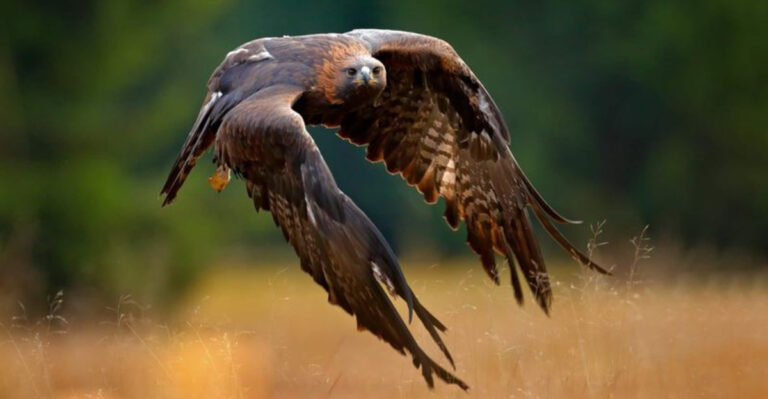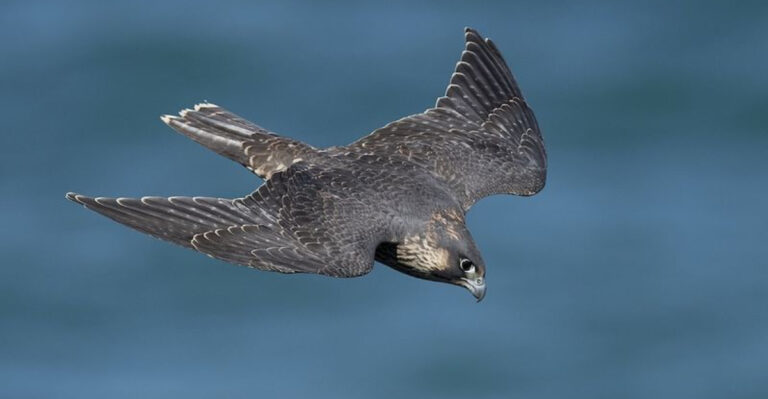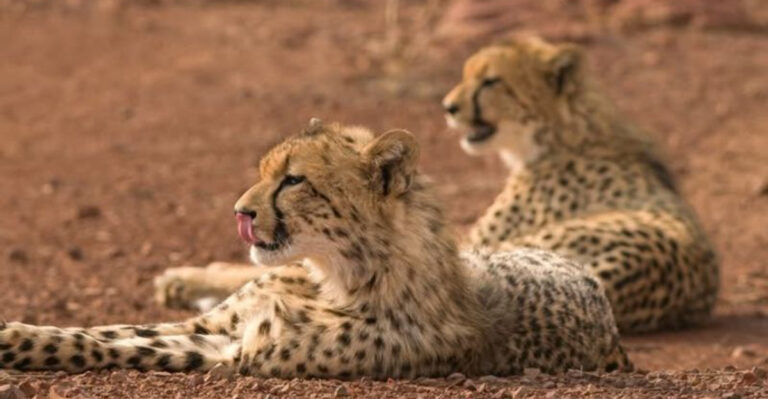8 Dog Breeds That Love Digging Up Yards (And 7 That Don’t Bother)

Ever wondered why your backyard looks like an archaeological dig site? If you’re a dog owner with a garden, you’ve probably faced the frustration of finding freshly dug holes scattered across your lawn.
Some dog breeds are natural-born diggers with an unstoppable urge to excavate, while others couldn’t care less about getting their paws dirty.
1. Terriers: Born To Dig
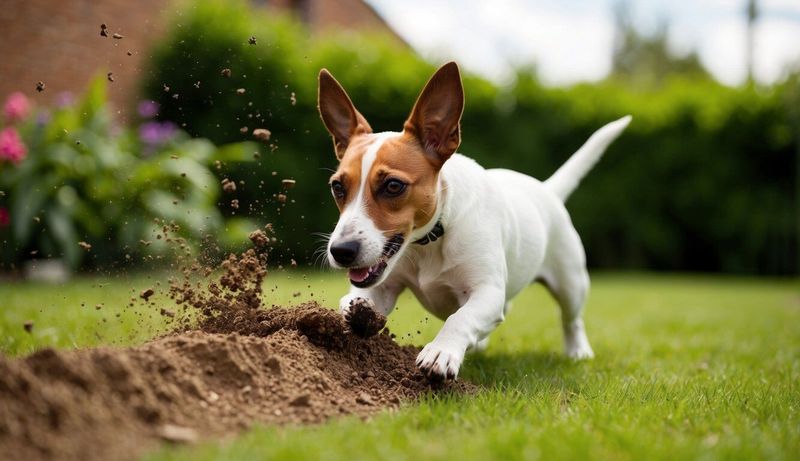
Bred specifically for hunting burrowing animals, terriers have digging in their DNA. Their name even comes from the Latin word ‘terra’ meaning earth!
Jack Russell, Fox, and Yorkshire Terriers all share this instinctual drive to tunnel after prey. When they catch an interesting scent in your garden, their powerful front paws start working overtime.
Terrier owners often create designated digging zones with buried toys to satisfy this natural urge without sacrificing the entire yard.
2. Dachshunds: The Tunnel Experts
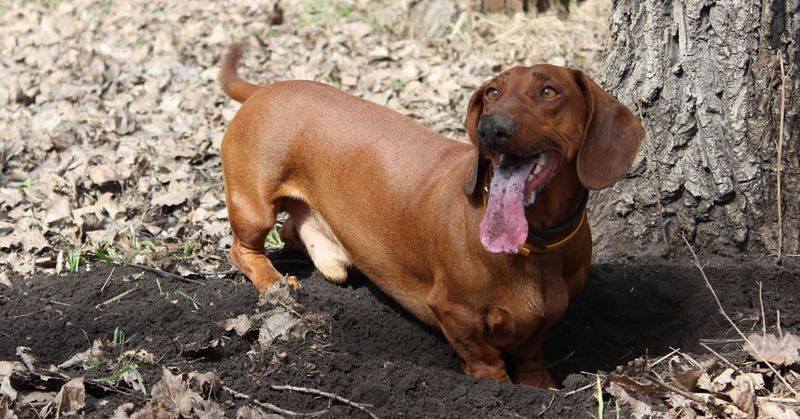
With their long bodies and short legs, Dachshunds were engineered for burrowing after badgers and other underground prey. Their name literally means ‘badger dog’ in German.
Those stubby legs pack surprising strength, perfect for moving earth at impressive speeds. When a Dachshund gets the urge to dig, they can create elaborate tunnel systems in your yard before you even notice.
Their hunting instinct remains strong despite generations as family pets, making them determined excavators.
3. Siberian Huskies: Escape Artists

Huskies dig for different reasons than hunting breeds. These arctic athletes often dig to create cool spots to lie in during hot weather, mimicking behavior from their northern origins.
Many Husky owners discover their escape artist tendencies when they find tunnels under fences. Their powerful legs and boundless energy make them efficient diggers when motivated.
Boredom is a major trigger for Husky digging sprees, so plenty of exercise and mental stimulation helps curb destructive yard excavation.
4. Beagles: Following Their Nose
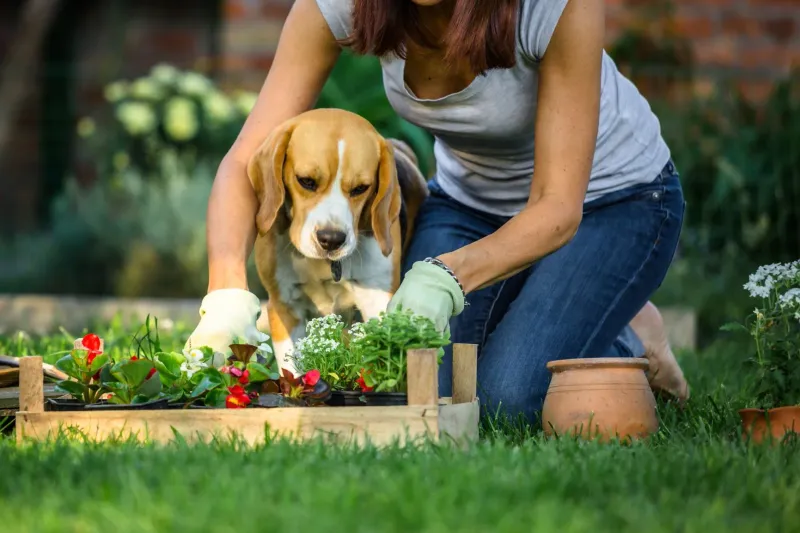
Beagles follow their extraordinary sense of smell right into digging trouble. Originally bred as scent hounds for rabbit hunting, they’re programmed to pursue interesting smells wherever they lead—even underground.
When a Beagle catches a whiff of something intriguing beneath your lawn, their natural response is to dig until they find the source. Their determined personalities make them persistent diggers.
Food scents are particularly motivating, so check for buried treats from previous outdoor gatherings!
5. Australian Shepherds: Working Without Work
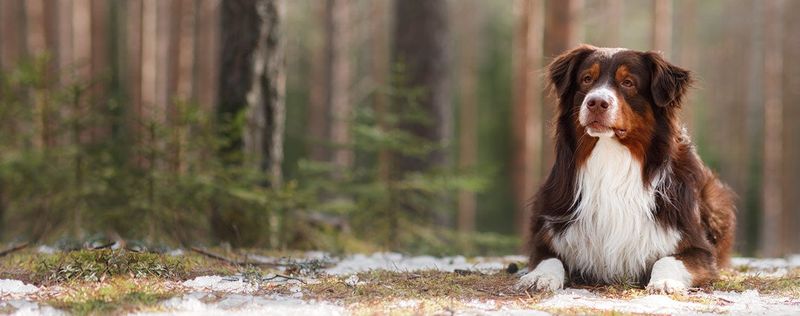
Australian Shepherds weren’t bred specifically for digging, but their incredible energy and intelligence create the perfect storm for yard destruction when bored. These herding dogs need jobs to do.
Without proper mental and physical challenges, Aussies invent their own entertainment—often in the form of landscaping redesign. Their powerful athletic builds make quick work of even tough soil.
Many Aussie owners report that increasing exercise and providing puzzle toys dramatically reduces unwanted digging behavior.
6. Border Collies: Brilliant Diggers
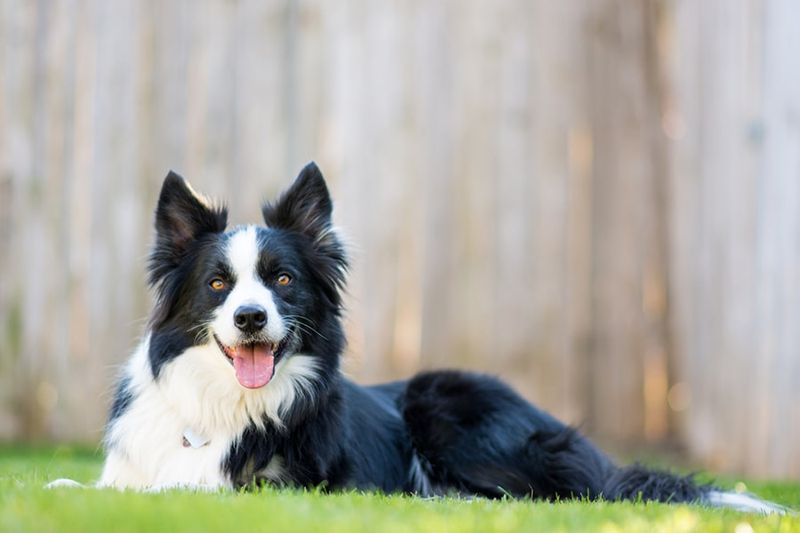
Border Collies channel their legendary intelligence and energy into digging when understimulated. Considered the smartest dog breed, they need constant mental challenges to stay out of trouble.
Their problem-solving abilities make them particularly strategic diggers—they’ll observe where you’ve filled previous holes and try new locations. Some even learn to use tools or objects to assist their digging efforts!
Agility training, herding trials, or advanced obedience work helps redirect their focus away from your flowerbeds.
7. Alaskan Malamutes: Den Diggers
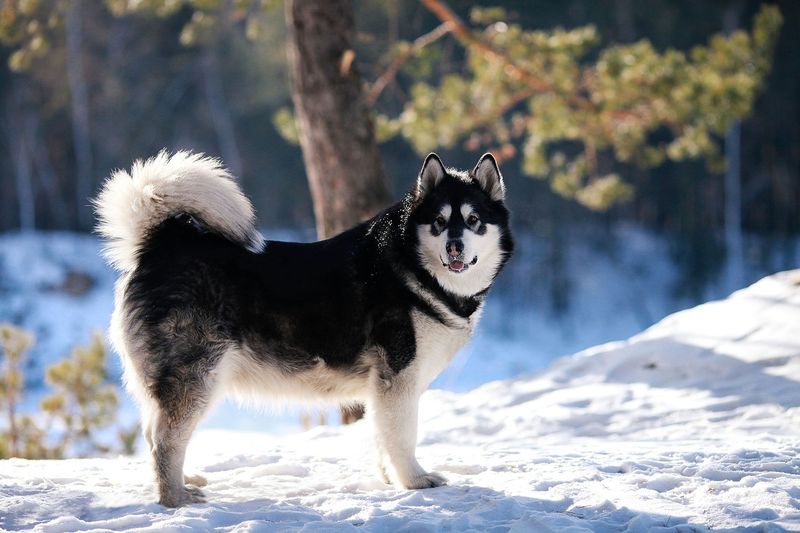
Malamutes dig with purpose, creating cool dens in hot weather just as their ancestors did in the Arctic. These powerful sled dogs have thick double coats that make them heat-sensitive.
During summer months, a Malamute might excavate a surprisingly deep hole, then happily curl up in their DIY cooling station. Their massive paws move dirt efficiently, turning your yard into a crater field.
Providing shaded areas, kiddie pools, and indoor access during hot days helps reduce this instinctual behavior.
8. Airedale Terriers: The King Of Diggers
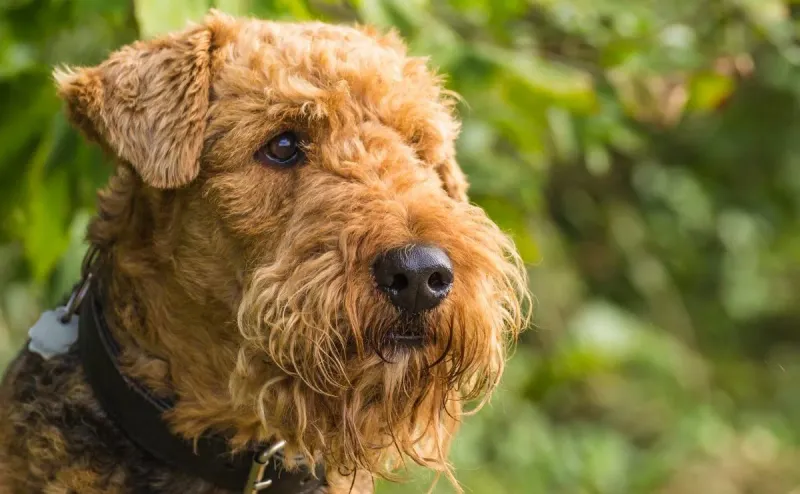
As the largest of all terrier breeds, Airedales bring industrial-strength digging capabilities to your yard. Their heritage as versatile hunting dogs includes serious earth-moving skills for pursuing foxes and other burrowing prey.
Those massive paws can displace shocking amounts of soil in minutes. Many Airedale owners are surprised by how quickly their manicured lawns can transform into lunar landscapes.
Their high intelligence means they quickly learn where digging is forbidden—and where you’re not watching closely enough!
9. Cavalier King Charles Spaniels: Gentle Non-Diggers
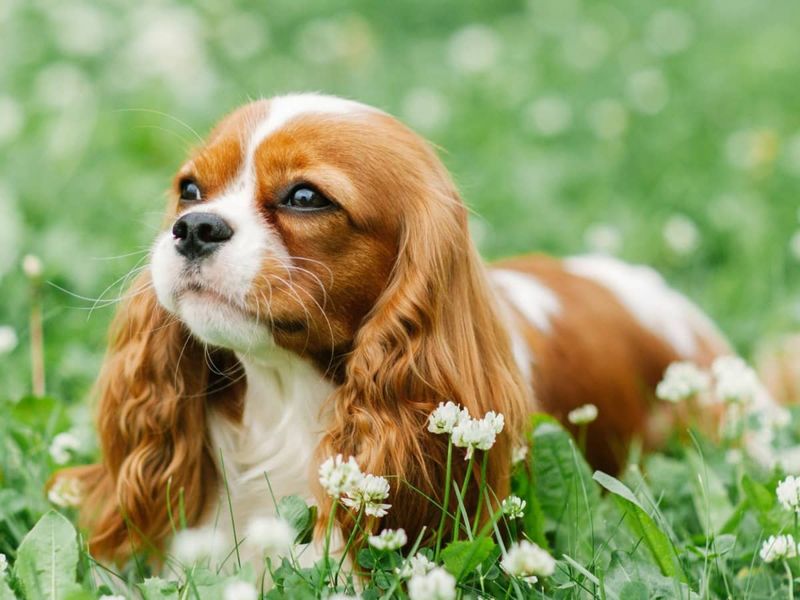
These aristocratic companions prefer lounging on pillows to digging in dirt. Cavaliers were bred specifically for nobility as lap dogs, not working dogs, so they lack the instinctual drive to dig.
Their gentle, affectionate nature makes them more interested in human interaction than solo outdoor activities. When in the yard, they typically prefer gentle exploration or sunbathing to destructive behaviors.
Most Cavalier owners report intact gardens even after years of dog ownership—a refreshing change from digger breeds!
10. Shih Tzus: Royal Ground-Preservers
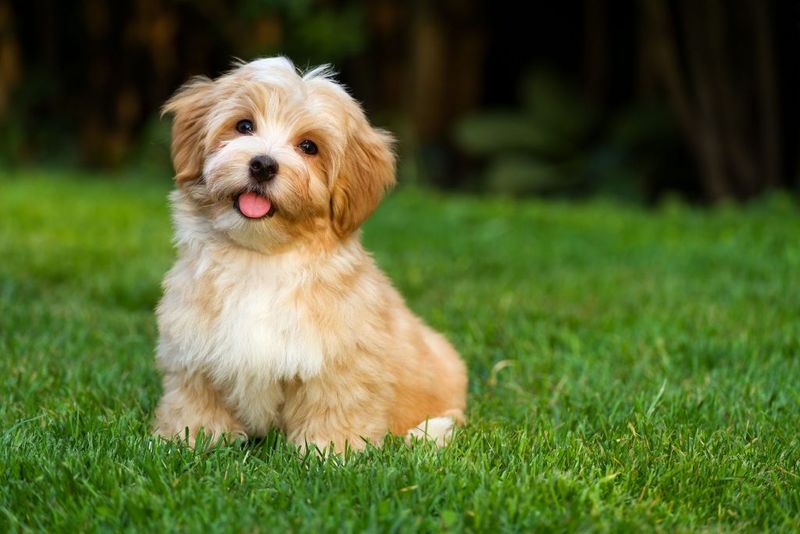
Shih Tzus were bred as royal companions in Chinese palaces, not as working dogs, giving them zero interest in dirt-related activities. Their name means ‘little lion,’ but their behavior is more ‘pampered prince.’
These elegant dogs typically avoid anything that might soil their luxurious coats. Most Shih Tzu owners find their yards remain perfectly intact year after year.
Their indoor-oriented lifestyle means they usually prefer quick bathroom breaks outside rather than extended excavation projects.
11. Maltese: Pristine Paw Princesses
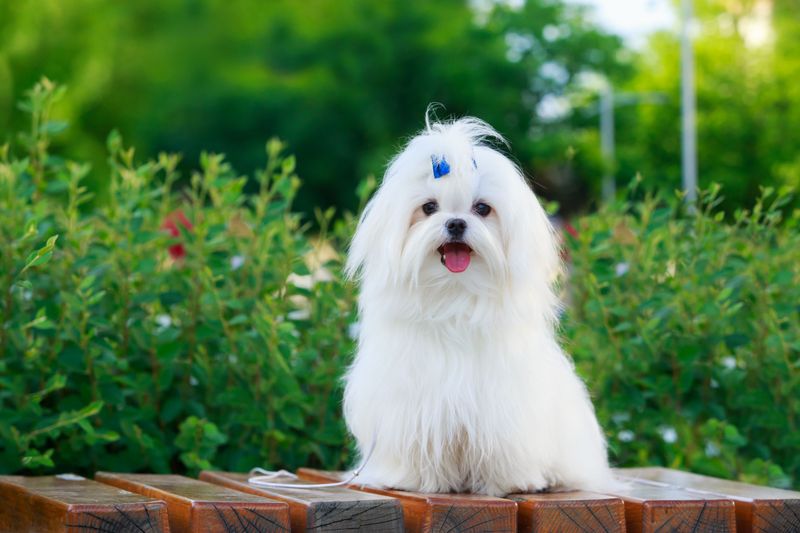
With their flowing white coats and dainty builds, Maltese dogs show little interest in the messy business of digging. These ancient lap dogs have spent thousands of years being pampered, not working.
Most Maltese view dirt as an enemy to their immaculate appearance. They typically tiptoe through grass, avoiding mud and maintaining their pristine image.
Their small size also limits their digging capability—those tiny paws aren’t built for serious earth moving, even if they wanted to try!
12. Bulldogs: Too Lazy To Dig
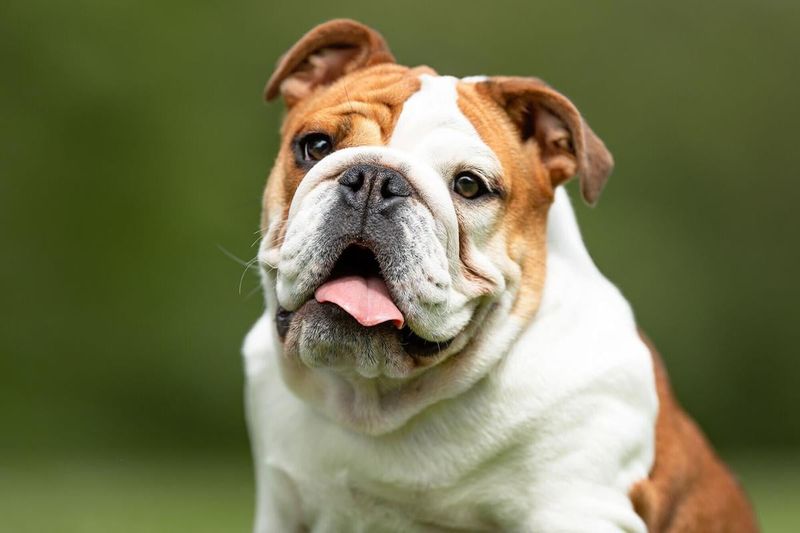
English Bulldogs save energy by avoiding unnecessary activities like digging. Their stocky bodies and breathing challenges make them natural conservationists when it comes to physical exertion.
Most Bulldog owners report their yards remain intact simply because their dogs prefer napping to any form of work. When outdoors, they typically find a comfortable spot and settle in for a snooze.
Their idea of yard maintenance involves strictly supervisory roles—watching from the shade while humans do all the digging.
13. Basset Hounds: Sniffers Not Diggers
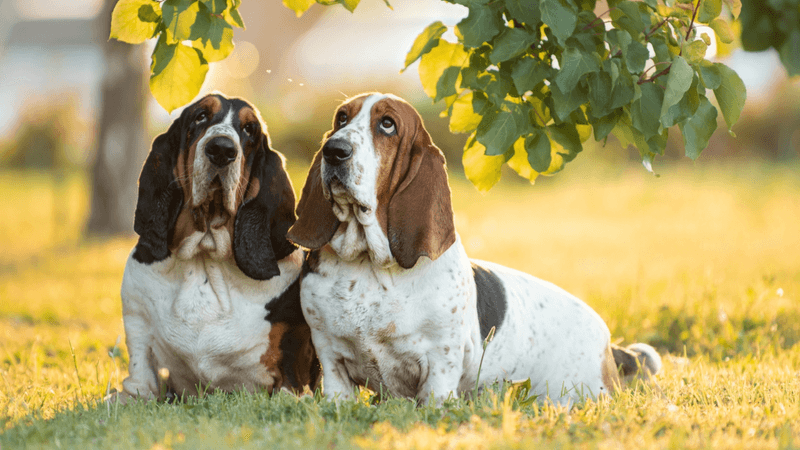
Despite their hunting heritage, Basset Hounds prefer using their legendary noses above ground. These scent specialists follow interesting smells horizontally rather than vertically.
Their short legs and long bodies aren’t ideal for digging activities. When tracking a scent, they’re more likely to follow it across your yard than try to dig it up.
Most Basset owners find their gardens remain intact, though flower beds might suffer from enthusiastic trampling during scent investigations!
14. Bichon Frises: Clean Paw Policy
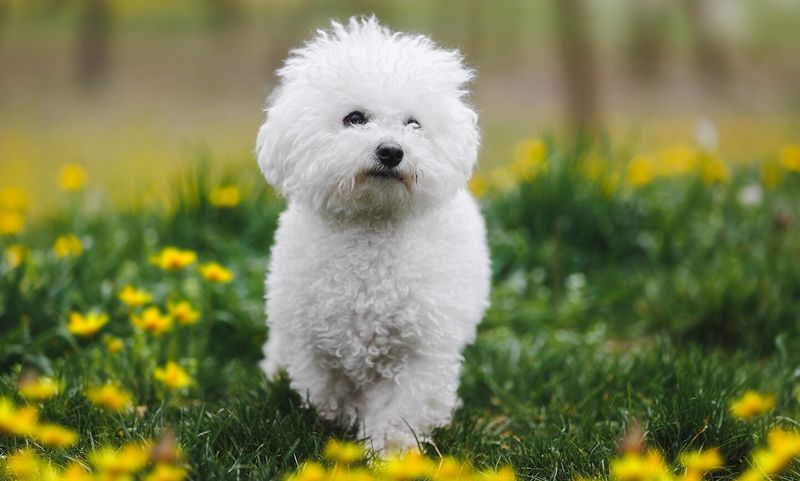
Bichon Frises maintain a strict ‘clean paw policy’ that preserves your landscaping. These fluffy white dogs were bred as companions for nobility, not as working dogs with digging instincts.
Their fastidious nature means they often avoid mud and dirt altogether. Many Bichon owners notice their dogs will even avoid walking on wet grass if given the choice!
Their small size and gentle disposition make them ideal for gardens with delicate plants that would suffer from a more rambunctious breed’s attention.
15. Great Danes: Gentle Giants Of The Garden
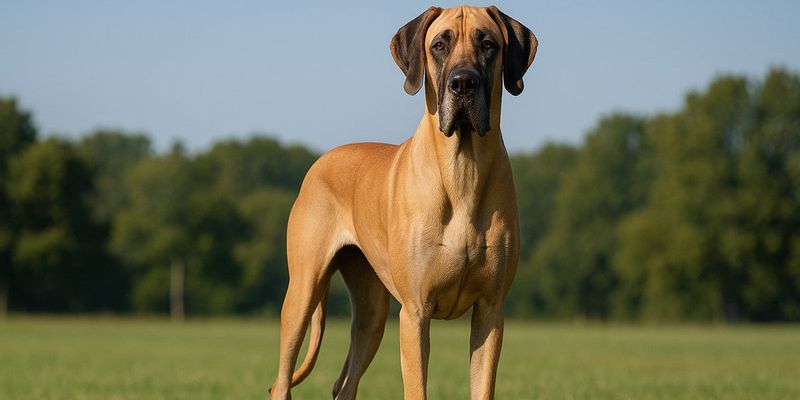
Despite their massive size, Great Danes are surprisingly gentle with landscapes. These noble giants typically move carefully through outdoor spaces, aware of their substantial dimensions.
Their aristocratic breeding focused on companionship rather than working abilities, leaving them without strong digging instincts. Most Great Dane owners report intact yards despite their dogs’ impressive physical capabilities.
When outdoors, these dogs generally prefer lounging regally on the lawn to engaging in destructive behaviors.


